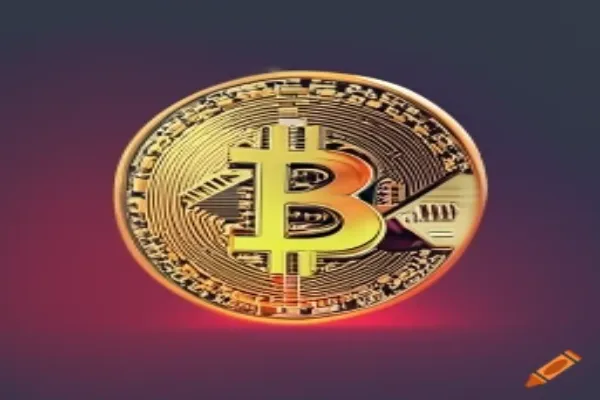
Understanding the Crypto Landscape
The world of cryptocurrency can be a thrilling yet confusing space. With new terms and concepts emerging constantly, navigating the intricacies can feel overwhelming. Two fundamental components – cryptocurrency exchanges and cryptocurrency wallets – play vital roles in managing your digital assets. But understanding how they differ is crucial for informed decision-making.
The Marketplace: Unveiling Cryptocurrency Exchanges
Imagine a bustling marketplace where you can buy, sell, and trade various cryptocurrencies. That’s the essence of a cryptocurrency exchange. These platforms connect buyers and sellers, facilitating transactions between different digital assets. Here’s a glimpse into how exchanges operate:
- Variety of Cryptocurrencies: Reputable exchanges offer a wide range of cryptocurrencies, from established players like Bitcoin and Ethereum to newer altcoins. This allows me to diversify my portfolio and explore different investment opportunities.
- Trading Options: Exchanges provide various trading options, from simple market orders to complex stop-loss orders. This flexibility caters to both novice and experienced traders.
- Fiat Compatibility: Many exchanges allow me to deposit and withdraw funds using traditional fiat currencies (like USD or EUR). This eliminates the need for complex peer-to-peer transactions.
- Security Measures: Reputable exchanges prioritize security by implementing robust measures like two-factor authentication and cold storage for user funds. However, it’s important to remember that no system is foolproof.
A Secure Haven: Cryptocurrency Wallets
While exchanges are fantastic for trading, they aren’t ideal for long-term storage. This is where cryptocurrency wallets come in. Think of a wallet as a secure digital vault where you store your crypto holdings. Here’s what wallets offer:
- Offline Storage: Certain wallets, like hardware wallets, offer offline storage, keeping your private keys (essentially passwords for accessing your crypto) completely isolated from the internet. This significantly reduces the risk of hacking.
- Control and Security: With most wallets, I hold the private keys myself. This gives me complete control over my assets and eliminates the reliance on a third party (like an exchange) for safekeeping.
- Variety of Options: Wallets come in various forms, each with its own advantages and disadvantages. Hardware wallets offer the highest security, while software wallets provide convenience but may be less secure. Mobile wallets offer on-the-go access but might have limitations.
Understanding the Key Differences: A Side-by-Side Comparison
Function:
- Exchange: Facilitate buying, selling, and trading cryptocurrencies.
- Wallet: Securely store cryptocurrencies.
Security:
- Exchange: Stores user funds on their platform, potentially exposing them to hacking risks.
- Wallet: I hold the private keys with some wallets, offering greater control and potentially higher security.
Control:
- Exchange: I have limited control over how my funds are stored.
- Wallet: With some wallets, I have complete control over my private keys and, therefore, my crypto.
Accessibility:
- Exchange: Generally offer easy and convenient access through web browsers or mobile apps.
- Wallet: Accessibility varies depending on the type of wallet. Hardware wallets might require physical connection to a device, while software wallets can be accessed from various platforms.
Choosing the Right Tool for the Job

The ideal choice between an exchange and a wallet depends on my specific needs. Here’s a breakdown to help guide my decision:
- Frequent Trading: If I plan to trade cryptocurrencies regularly, an exchange is the better option due to its convenience and diverse trading features.
- Long-Term Storage: For long-term storage of cryptocurrency holdings, a secure wallet, especially a hardware wallet, is the best choice due to its enhanced security measures.
- Balance: Some users choose to leverage both! I can keep a small amount of crypto on an exchange for easy trading and store the majority in a secure wallet for safekeeping.
Exploring Additional Considerations
- Regulation: Cryptocurrency regulations are constantly evolving. It’s wise to choose an exchange that operates in a compliant manner.
- Wallet Fees: Some wallets, particularly hardware wallets, may have upfront purchase costs. However, the enhanced security they offer can outweigh the initial expense.
- User Reviews: Reading user reviews and conducting research on different exchanges and wallets can help me make informed decisions.
The Final Takeaway: Understanding Your Cryptocurrency Needs
By understanding the distinct roles of cryptocurrency exchanges and wallets, I can make informed decisions about managing my digital assets. Exchanges provide a vibrant marketplace for trading, while wallets offer a secure haven for long-term storage. Choosing the right tool depends on my individual needs and risk tolerance. Remember, the exciting world of cryptocurrency awaits – explore it responsibly and with a clear understanding of the landscape!
Disclaimer
This article may cover content on products that are not available in your region. It is provided for general informational purposes only, no responsibility or liability is accepted for any errors of fact or omission expressed herein. It represents the personal views of the author(s) and it does not represent the views of mangapanda-blog.com. It is not intended to provide advice of any kind, including but not limited to: (i) investment advice or an investment recommendation; (ii) an offer or solicitation to buy, sell, or hold digital assets, or (iii) financial, accounting, legal, or tax advice. Digital asset holdings, including stablecoins and NFTs, involve a high degree of risk, can fluctuate greatly, and can even become worthless. You should carefully consider whether trading or holding digital assets is suitable for you in light of your financial condition. Please consult your legal/tax/investment professional for questions about your specific circumstances.
Leave a Reply